Reviving Nuclear Deal Will Lead To Spread Of Terrorism – Former US Official

Former State Department Spokesperson Morgan Ortagus has denounced the Biden Administration for alleged concessions to Iran to revive the 2015 nuclear deal, JCPOA.

Former State Department Spokesperson Morgan Ortagus has denounced the Biden Administration for alleged concessions to Iran to revive the 2015 nuclear deal, JCPOA.
Ortagus told Iran International on Friday that while the Iranian regime is in a bad situation, the Biden administration wants to provide money to the Islamic Republic which will lead to more terrorism across the Middle East and the world.
In the latest case of Congressional opposition to reviving the deal, a group of senators has introduced a bill making sanctions “permanent.” The Solidify Iran Sanctions Act 2022 would abolish the ‘sunset’ clauses in the 1996 Iran Sanctions Act (ISA) set to expire 2026.
A leaked report on alleged remarks by Iran's chief nuclear negotiator Ali Bagheri-Kani provides details on "concessions" Iran claims to have received from the US.
As part of the new deal, Iran reportedly will release all US prisoners once $7 billion of its assets frozen in South Korea are released. Bagheri said Iran and the US had earlier agreed on this, but US reneged on its promise, assuming that the money will give Iran financial breathing room to raise new demands.
US regional allies Israel and Arab Persian Gulf States were opposed to the original JCPOA and are concerned over its revival four years after former President Donald Trump withdrew from the agreement calling it a bad deal.
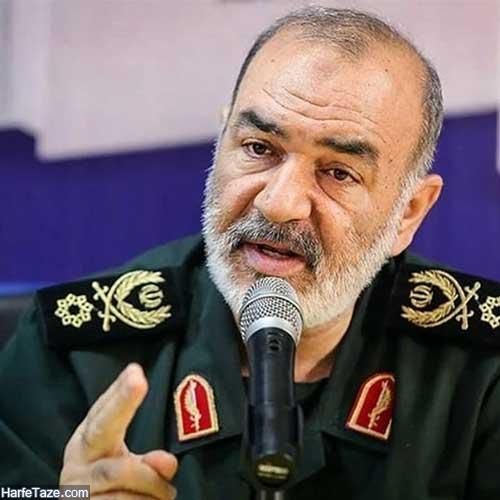
The commander of the Revolutionary Guard (IRGC) says the war between Israel and Palestinians is not limited to Gaza and has expanded to the West Bank.
In an interview with the official website of Iran’s Supreme Leader published on Friday, Major General Hossein Salami said that “the flames of resistance that were ignited in the occupied territories have never been extinguished and you constantly observe that these struggles continue in all Palestinian territories.”
Praising the attacks by the Palestinians against the Israelis, he claimed many Israelis have been killed in the operations by “resistance groups inside the occupied territories,” in the past several months. He added that the number of Israelis killed is significantly higher than the previous year.
Salami said that the Palestinians have evolved in their military capabilities and can now target any part of Israel, claiming that there is no safe place for Israelis that Palestinians' rockets cannot reach. He also said that “if you add Lebanon's Hezbollah to this equation, you realize that hundreds of thousands of rockets arrayed against the Zionist regime can be fired from the north and west in the Gaza Strip and in the north, from Hezbollah's side.”
“Missiles are great for deterrence and conducting static wars, but the rocket is not the liberator of the land – the infantry must set foot on the ground and liberate the land step by step,” he added.
Earlier in the month, Ali Khamenei praised the Islamic Jihad for “uniting Anti-Israeli Resistance” and “displaying the integrity of the Palestinian nation’s jihad.”

An unnamed US official has told CNN that Iran has dropped one of its key demands in the nuclear talks, while leaks from Tehran portray extensive US concessions.
CNN quoted the US official late Friday that Iran’s thorny demand to remove its Revolutionary Guard (IRGC) from the US list of Foreign Terrorist Organizations is no longer mentioned by Tehran in its latest response to a European Union draft proposal.
Leaked information from Iran obtained Friday by Iran International corroborates this development, as Iran’s chief negotiator Ali Bagheri-Kani allegedly told reporters in a closed-door briefing this week that the IRGC issue will be taken up in separate future talks.
What remains unclear are dozens of companies and banks sanctioned by the United States that are affiliated with the IRGC. It is not clear if the US will remove sanctions on most or some of these entities.
The leaked information from Iran, although not specific, points to 17 banks and numerous companies and quasi-state institutions being relieved of sanctions, while the official speaking to CNN said Iran “also dropped demands related to delisting” several companies linked to IRGC.
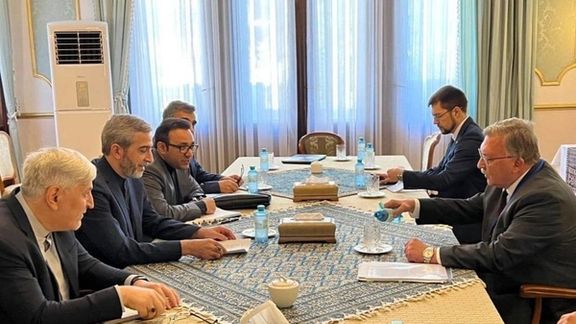
The apparent contradiction might be entirely an issue of numbers. While dozens of entities were sanctions by the Trump administration, a few might be kept on US sanctions, while many more might be removed. In a sense, at this point when there is no official details about the talks, both the leaked information from Tehran and the unnamed official in Washington might be semantically telling part of the truth.
Iran International reported on Thursday that information circulating among pro-government hardliners in Tehran said sanctions will be removed from 150 institutions or entities, all affiliated with the state or with centers of power such as “charitable” organizations linked to the office of the Supreme Leader and possibly the IRGC.
One name mentioned is a huge business conglomerate, presented as a charity, directly run by Supreme Leader Ali Khamenei’s office. The entity is called The Execution of Imam Khomeini's Order (EIKO), which is known in Persian simply as Setad, which was not sanctioned specifically for Iran’s nuclear program.
In this sense, the problem of whether to delist IRGC or not is clouding the main issue in the US negotiations policy. The Biden Administration has been claiming that it will not lift non-nuclear sanctions, such as those imposed for links to terrorism, Iran’s missile program or human rights violations. EIKO was sanctioned on January 13, 2021, days before President Trump left office, under the Executive Order (E.O.) 13876, which was imposed for Iran’s regional destabilizing activities and its missile program.
Therefore, the more important issue with US concessions to Iran is not merely keeping the IRGC and a few of its companies sanctioned, but more broadly what other regime-affiliated entities will be taken out of sanctions.
In the leak about Bagheri-Kani’s briefing, it is mentioned that the IRGC sanctions will remain in place, but they will have a more “symbolic” significance, since the US has agreed not to penalize other entities having interactions with the military-intelligence force dominating Iran’s political and economic landscape.

A notorious commander of Iran's Revolutionary Guard (IRGC), previously expelled from Syria, was in charge of operations to kill Israelis, Iran International has learned.
General Javad Ghaffari, the IRGC Qods Force commander who had reportedly been expelled from Syria last November for ‘major breach of Syrian sovereignty’, led the IRGC Intelligence Organization's plots to kill Israelis in Turkey in the past nine months, a former senior IRGC official told Iran International.
After returning from Syria, Ghaffari was appointed as the deputy head of IRGC Intelligence Organization for Special Operations, where he orchestrated a series of failed attacks against Israeli citizens, the Iranian source said.
In the latest case in June, Turkey's National Intelligence Organization (MIT) thwarted a planned attack against Israeli diplomats and tourists in Istanbul. MIT said that it detained eight suspects allegedly working for an Iranian intelligence cell.
Ghaffari was the third commander of the Iranian forces in Syria since 2011 when Iran began its large-scale intervention in Syria's civil war. He started his career in Syria as one of the commanders at the Iranian forces' headquarters in Damascus and was later appointed as the commander of the forces in Aleppo - where he became known as the 'Butcher of Aleppo'.
There, he led Iranian forces as well as their Lebanese Hezbollah proxies and Afghan mercenaries, the Fatemiyoun, until he was allegedly ousted by Assad.
Ghaffari was expelled from Syria as he was "accused of ‘major breach of Syrian sovereignty’ after attacking US forces, and deploying Iranian weapons to unapproved places," the Times of Israel quoted Saudi sources as saying.
According to the Times, it was reportedly Syria that shunned Ghaffari for "nearly starting a war with Israel," and "almost causing an unwanted regional war."
Back-to-back failures
Ghaffari's expulsion from Syria not only did not result in his retirement, but also won him a senior position at the IRGC Intelligence Organization (SAS).
His failures at SAS outraged many IRGC officials, and finally prompted Iran's Supreme Leader Ali Khamenei to sack the organization's controversial, but powerful chief Hossein Ta'eb, who had run SAS for 13 years.
However, Ghaffari was not the first or only official responsible for SAS operations overseas. His predecessor Reza Seraj had also been sacked for a failed plot to kill Israelis in Cyprus.
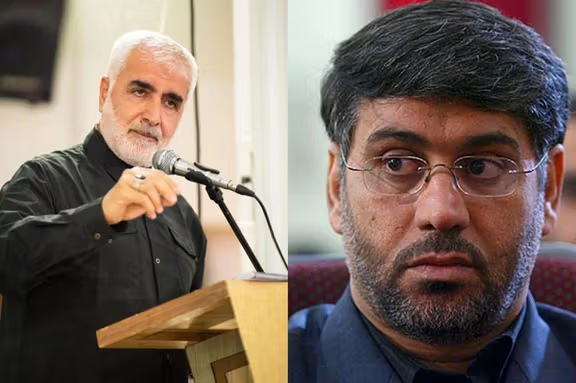
Another key figure in the unsuccessful attempts to assassinate Israelis in Turkey was Rouhollah Bazghandi, the deputy head of the SAS counterintelligence (Unit 1500), the former senior IRGC official told Iran International.
Bazghandi was in charge of the June operation to assassinate former Israeli Consul General in Istanbul, Yosef Levi Sfari, as well as three Israeli women tourists.
By using amateur agents to carry out the attacks against Israeli targets in Istanbul, Bazghandi dealt a heavy blow to IRGC Intelligence Organization, the source told Iran International.
He was also in charge of thwarting plots to assassinate Iran's security officials inside Iran; however, Hossein Ta'eb used him for his extraterritorial operations, and apparently his absence, among other reasons, turned Iran into a safe haven for Israeli Mossad agents who launched several sabotage operations and assassinations, killing Colonel Hassan Sayyad Khodaei, other key figures and scientists in Iran's drone, missile and nuclear program.
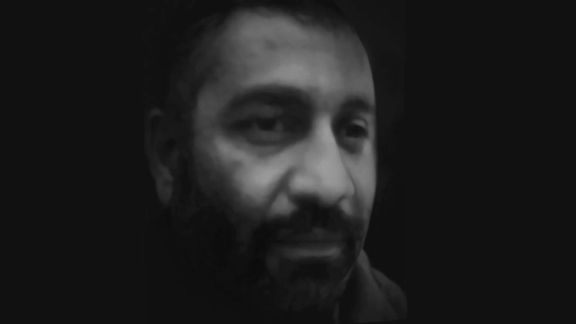
On May 22, two assailants on a motorbike fired several bullets at Col. Sayyad-Khodaei outside his home in broad daylight, prompting Iranian officials to accuse Israel of organizing the attack, and vowed revenge.
This incident was followed by more mysterious deaths of IRGC officers and weapons experts, which were again blamed on Israel that has not denied responsibility as it is engaged in a secret war with the Islamic Republic.
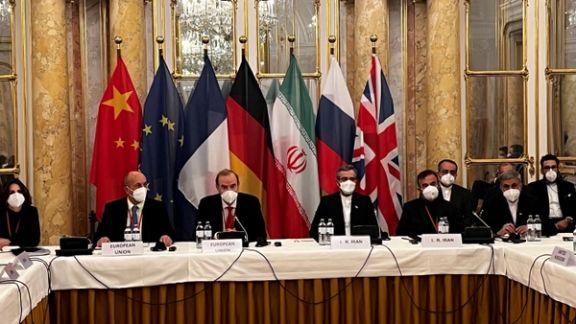
A leaked report on alleged remarks by Iran's chief nuclear negotiator obtained by Iran International, provides details on "concessions" Iran claims to have received from the US.
The leaked report is from a closed-door briefing Ali Bagheri-Kani provided to journalists in Tehran in recent days.
The length and breadth of points mentioned by Iran’s chief negotiator show a multitude of concessions by the United States, but it does not include references to what Iran has agreed to do, to return to compliance with 2015 nuclear deal, the JCPOA.
On Thursday, Iran International received information circulating among Iranian hardliners about alleged "concessions" offered by the United States, but the original source was not identified.
According to detailed leaked information, Bagheri Kani mentioned the following “concessions” Iran was able to extract from the US.
1- The amount of natural uranium Iran receives from Russia must be double the amount of yellowcake it is obligated to hand over to Russia according to the JCPOA.
2- Issue of removing IRGC from the US list of Foreign Terrorist Organization (FTO) will be discussed in negotiations that will follow the revival of JCPOA.
3- However, the US guarantees that its sanctions against IRGC would not affect other sectors and firms: e.g. a petrochemical company shouldn't be sanctioned by US because of doing business with IRGC. In other words, the FTO designation will have mostly a “symbolic” value.
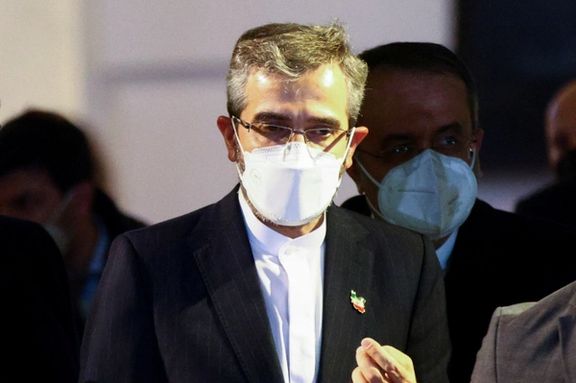
4- The US guarantees that its domestic laws like The Countering America's Adversaries Through Sanctions Act (CAATSA) and Patriot Act would not impact implementation of its obligations under JCPOA. This claim by Bagheri-Kani can have serious legal implications, since both deal with financial and other illegal activities in arms proliferation and terrorism.
5- In addition to the United States abrogating three Executive Orders issued by former President Donald Trump, Iran has received concessions from US on two other Trump EOs which deal with sanctions on Iranian entities tightly linked to the state and its military and clandestine projects. Bagheri-Kani said during the briefing that Iran has not given any concessions in return for annulment of these Eos.
6- Upon Russia's proposal, the deal says, "the participants note the firm commitment of the US President (not mentioning Joe Biden by name) for returning to JCPOA compliance as long as Iran remains committed to the deal." Bagheri says this means the US president guarantees implementation of JCPOA (even though it's not binding for any of the two sides).
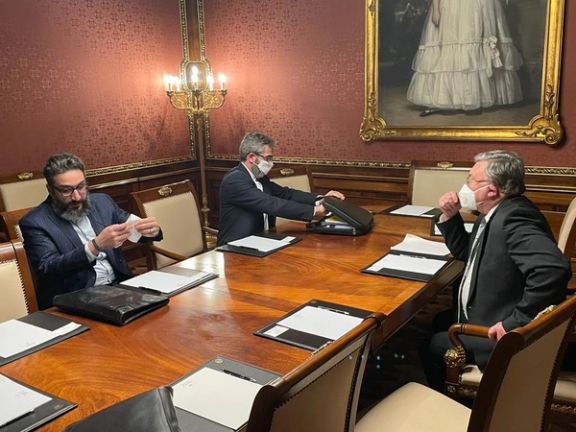
7- The UN Security Council’s snapback mechanism to be used in case of Iranian JCPOA violations can only be triggered based on an IAEA report. If one country triggers the mechanism unilaterally, other parties commit not to cooperate with it, and compensate the Iranian side.
8- The US guarantees that all foreign companies that would start working with Iran until the end of Joe Biden’s presidency, will remain exempted from possible reinstated US sanctions for 2.5 years after a US withdrawal. Bagheri- Kani explained that Iran demanded this clause in case if Republicans win the Whit House in 2024 and move to withdraw from the JCPOA. Although not binding once the US withdraws, but it would add more international political pressure on the United States.
9- US Secretary of State will publish a letter announcing the US participation in JCPOA.
10- In Doha talks in June, the US and EU accepted Iran's demand that the issue of IAEA probes are linked to JCPOA talks. Now the IAEA BoG is expected to end the the international nuclear watchdog’s probe into Iran’s past nuclear activites.
* Bagheri-Kani also claimed that he heard from Mora that Ulyanov had, in his talks with EU, expressed objection to closure of IAEA's Iran probe. But Bagheri says Mora must have been “lying” because Ulyanov always supported Iran's demand in his talks with the Iranian team.

11- Iran will release all US prisoners once the $7 billion worth of its assets frozen in South Korea are released. Bagheri said Iran and the US had earlier agreed on this, but US reneged on its promise, assuming that the money will give Iran financial breathing room to raise new demands.
According to Bagheri, Iran refused to accept the following US demands:
1- Discuss Iran’s missile program in parallel with the JCPOA talks. In fact, this was dropped during the first weeks of the Vienna talks in 2021 when the previous Iranian administration was conducting the negotiations.
2- Discuss Iran’s regional policies and actions, which the US still insists on and might be tied to future talks on lifting the IRGC sanctions – if any such talks take place.
3- Discuss limiting Iran’s nuclear breakout time.
4- Destruction of Iran's uranium enrichment centrifuges. Bagheri-Kani said that the other side wanted Iran to destroy its IR-6 advanced centrifuges (around 100 machines), but they finally agreed that Iran keeps the machines in a warehouse under IAEA's watch.
5- Destruction of concrete platforms of for these and possibly other centrifuges.
6- A promise by the two countries' foreign ministry spokespersons that Iran and the US will not anymore seek to kill citizens of the other side. Iran refused to accept this, even though US law enforcement agencies say the Islamic Republic launched plots to kill former Trump administration officials on US soil.
Bagheri-Kani at one point also said that Iran used smart tactics to win points. One example was disregarding around 11 deadlines set by the West, and on one occasion dismissiing US Special Envoy Rob Malley's threat to leave Vienna, saying that in the end Malley stayed.
It is not clear if leaking the information from Bagheri-Kani’s alleged media briefing was an intentional act by Tehran.
What he claimed in the briefing could still damage the outcome of the talks, and it is possible the victorious claims were intended for domestic consumption, once media in Iran is allowed to publish them.
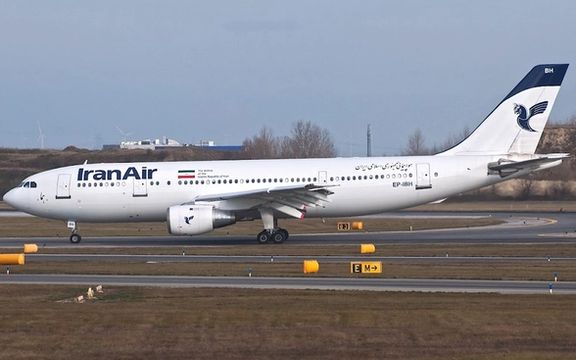
An Iranian lawmaker says due to sanctions on the country the quantity and quality of Iran's aviation industry is decreasing day by day.
According to Alireza Pakfetrat, the representative of Shiraz in the parliament, the number of passenger planes that remain operational have decreased as well as the number of flights in the country.
He added that the quality and technical upkeep of the aircraft have also suffered significantly, causing flight delays.
Criticizing Roads and Urban Development Ministry, he said it is spending most of its time and budget on housing projects and forgets that the aviation industry is also part of their responsibilities.
He also proposed splitting the ministry in two: one for urban development and one for road and transportation, which was the case in the past.
According to Alireza Barkhor, the deputy chairman of the Association of Iranian Airlines, more than 50 percent of Iran’s passenger planes are grounded due to lack of spare parts, particularly engines.
Iran has suffered from shortages of civilian airliners since the 1990s and used a variety of ways to lease older planes or buy spare parts through intermediaries, but the technical state of its fleet has been deteriorating.
The 2015 nuclear agreement (JCPOA) suspended sanctions on purchases of Western aircraft and Iran began talks to buy new planes from Boeing and Airbus. A few airbus planes were delivered but the Trump administration never approved sale of US planes until Washington withdrew from the JCPOA in May 2018 and reimposed sanctions.